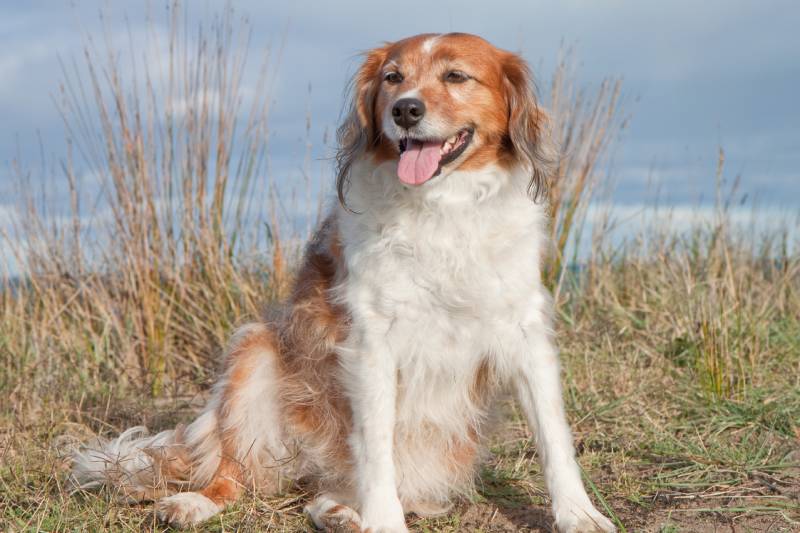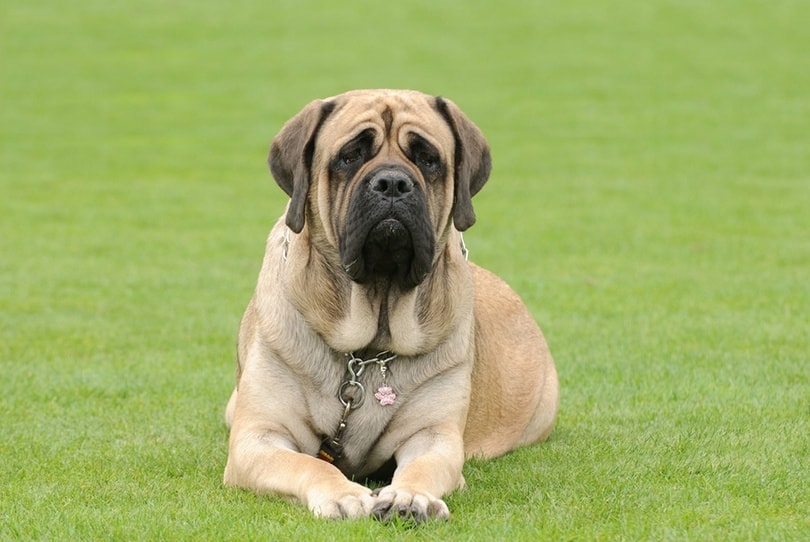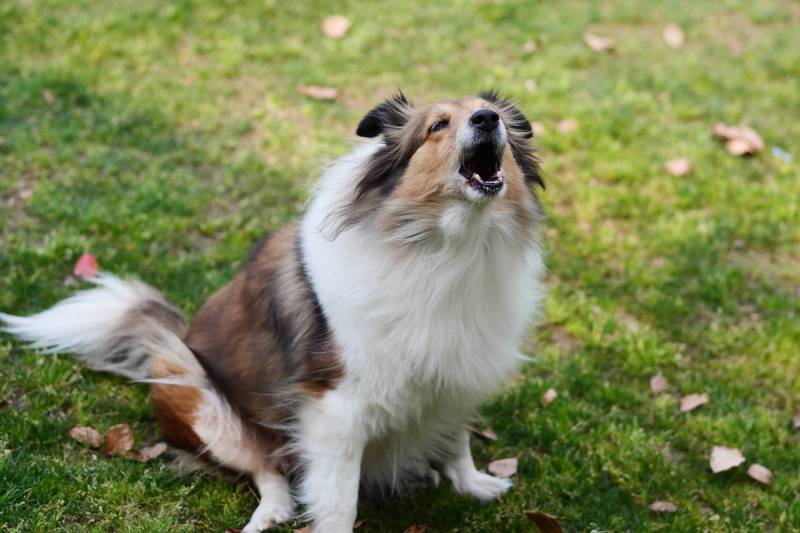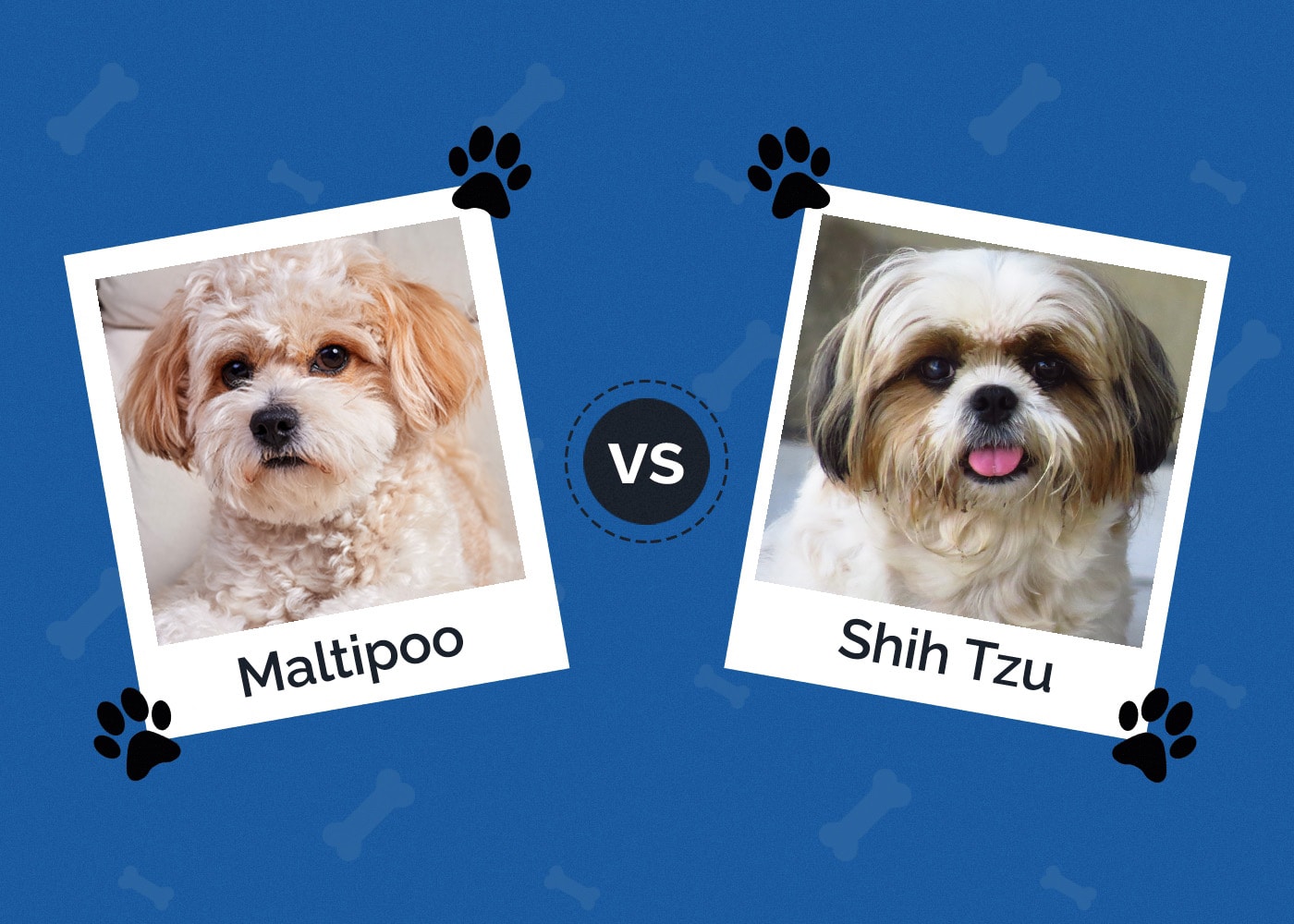New Zealand Heading Dog Breed: Pictures, Info, Personality & More

Updated on

Click to Skip Ahead
New Zealand Heading Dogs are relatively uncommon dogs with a unique set of characteristics and personality. While the requirements for them to thrive and enjoy life are quite specific, such that they aren’t for everyone, if your lifestyle and environment are a good match to theirs, there’s an excellent chance that they could prove to be the perfect choice for you and your family.
Breed Overview
| Height: | 20–24 inches |
| Weight: | 55–66 pounds |
| Lifespan: | 12–14 years |
| Colors: | Black/white/tan, occasionally tan/white |
| Suitable for: | Families with plenty of outdoor space and daily activity |
| Temperament: | Highly intelligent, relaxed, and friendly |
New Zealand Heading Dogs are descended from Scottish Border Collies, the well-known shepherd dogs. It is believed that James Lillico relocated to New Zealand from Scotland in the late 1890s and bred his Border Collies with local breeds used in heavy farm work.
The name “heading” was originally coined for dogs bred to work sheep, watching them diligently to prevent running off and gathering them together. The newly developed New Zealand Heading Dogs were found to be extraordinarily intelligent, tremendously task-oriented, and practically inexhaustible. Bred to run long distances and grow shorter coats for the hot New Zealand summers, they adapted easily to the local environment and became renowned for their unflagging devotion to their human overseers.
New Zealand Heading Dog Breed Characteristics
Highly intelligent and hyper-aware of their surroundings, New Zealand Heading Dogs have been bred to control sheep with their quick wits and lightning-fast reaction time. They are, obviously, favorites in competitive trials. New Zealand Heading Dogs are highly energetic with great stamina.
New Zealand Heading Dogs, without proper early training, can be highly reactive and oversensitive, a potential problem for environments with young children. A perfectionist with a serious drive to please, they live to serve. This makes them less than ideal for owners who cannot, or don’t, spend a lot of time with them.
Carefully and very successfully bred to work, New Zealand Heading Dogs need a lot of exercise and are most content when on the job. Left to their own devices, as with many purpose-driven breeds, their unfulfilled impulses can manifest in counter-productive, or even destructive, behavior.
New Zealand Heading Dog Puppies
New Zealand Heading Dog pups should receive a combination immunization, or “five-in-1”, at 2, 3, and 4 months, and after that once every year. Puppies will have enormous energy, which must be used up or they can become bored and unruly. Given their highly sensitive nature, the puppies should be socialized early. Many experts recommend that new owners take their New Zealand Heading Dog puppies to socialization courses as early as 8 or 9 weeks old. At this point, they should have received at least their first inoculations.
Encouraging them to mix with other dogs and people is critical for their emotional and behavioral well-being.
While New Zealand Heading Dogs are a relatively rare breed, they can be acquired from responsible breeders. It is important to never buy your dog from a puppy mill. As the name suggests, these establishments are often concerned only with pumping out litters, and the needs of pups and mothers may well be ignored. They can be inhumane facilities, with several litters being born every year, a practice causing serious health problems for the mothers and neglecting the needs of the pups.
Temperament & Intelligence of the New Zealand Heading Dog
The New Zealand Heading Dog is a beautiful dog, clever as anything, with extraordinary stamina. They can react quite strongly to loud noises and are generally pretty sensitive, so a noisy, chaotic family environment might not be best for them. The New Zealand Heading Dog is both affectionate and a perfectionist. While these dogs love to please, their highly active tendencies, as mentioned, require more than just a walk a day. They aren’t just bred for work, they crave it and need plenty to stay happy and content.
Boredom can drive them to be creative and develop other behavioral problems. Open country is a great home for this canine. Bored and underworked New Zealand Heading Dogs are known to start herding children or even strangers, which needs prompt correction.
Are These Dogs Good for Families? 👪
Yes! They get along well with small children and are extraordinarily affectionate, devoted, and companionable. They love to play and obviously have loads of energy for non-stop play with the whole family. They love human company and thrive on human interaction.

Does This Breed Get Along with Other Pets?
Other dogs are readily accepted, and they can even get along with the family cat, although it helps if they grew up together. Other small animals, however, maybe not so much, since your New Zealand Heading Dog might consider them prey.
Things to Know When Owning a New Zealand Heading Dog:
Food & Diet Requirements 🦴
Better-quality dry food delivers balanced nutrition to adults and may be mixed with broth, water, or canned food. Your New Zealand Heading Dog may be fond of things like eggs, fruits, and vegetables, but these should remain treats, making up no more than 10% of their daily intake.
Puppies will benefit from high-quality puppy food. Try hard to avoid too much “people food,” which can lead to mineral/vitamin imbalances, bone and teeth issues, and can promote fussy eating habits and obesity. Clean, fresh water must be available at all times, especially given their high levels of activity.
| Age | Number of meals/day |
| 8 and 12 weeks | 4 |
| 3 to 6 months | 3 |
| 6 months to 1 year | 2 |
| 1 year+ | 1 or 2 half meals |
The following items must never be fed to your New Zealand Heading Dog, as they can cause all kinds of issues.
- Alcoholic beverages
- Chocolate, coffee, or tea
- Raisins and grapes
- Spoiled or moldy food
- Onions, chives, and garlic
- Chicken, turkey, or any other poultry bones
- Salt & salty foods
- Tomato leaves, unripe fruit & stems
- Dough
Exercise 🐕
As we’ve mentioned, New Zealand Heading Dogs have an enormous amount of energy. They need large amounts of exercise every single day, just for maintenance, or all kinds of problems can result. Once again, a simple walk won’t cut it.
These dogs need at least 60–120 minutes of activity daily.
They make fantastic hiking or tramping companions and are great running partners. Any kind of field games or exercises will make your New Zealand Heading Dog’s day, especially ones that mimic their natural running, herding, and steering capabilities.
Training 🎾
New Zealand Heading Dog dogs are very easy to train, given their keen intelligence and willingness to please. Training of standard commands like Stay, Come, Down, Heel, Off, etc. will not only help to communicate but also provide bonding with them. Puppies should commence training early, with dog snacks a good motivator. Obedience classes can start following immunization.
Grooming ✂️
New Zealand Heading Dogs have average grooming needs. Visits to a professional groomer aren’t normally called for. New Zealand Heading Dogs shed moderately, as a normal part of hair growth. Brushing is, of course, helpful in minimizing shedding, and ears and eyes should be cleaned regularly to avoid infection.
Flea treatments once a year are a good idea, and nail trimming and baths can be helpful when needed. Your local pet store should have a good quality dog shampoo to maintain a nice looking and healthy coat, and your dog will no doubt find the bath a pleasant experience. If you don’t have the time, an appointment can be made with a local groomer or clipping service.
Baths are recommended at least every 6 weeks or so for your pup. Before a bath, comb or cut out any matting from their fur. Make sure and rinse all soap out, or it will attract dirt. This is also a good opportunity to check your pooch for any unusual damage, bumps, flea incursion, and other issues. Wet fur, flat against their bodies, can reveal these details more readily, and appropriate action should be taken accordingly.

Health & Conditions 🏥
While New Zealand Heading Dogs are hearty and robust, they should see the veterinarian for a complete exam annually, and immediately if injured or ill.
Foul breath normally indicates that your New Zealand Heading Dog requires some attention to their oral health. If cleaning is needed by a professional, gums and teeth can be maintained after by regular brushing, specially formulated dental diet and treats, and avoiding table scraps.
Bad breath can also be the result of other fairly serious, long-term problems, such as diabetes, and problems with the intestines, liver, or kidney disease. See the veterinarian when your New Zealand Heading Dog exhibits halitosis, especially in the presence of other signs like excessive urinating or drinking, depression or lethargy, weight loss, nausea, or decreased appetite.
- Ear Infections
- Eye Infections
- Complete Blood Count
- Blood Glucose Tests
- Although they aren’t prone to any particularly serious conditions, your New Zealand Heading Dog should always be checked for heartworms as part of their yearly checkup, preferably in the spring, as they can be potentially deadly.
Male vs Female
With the exception of pregnancy and parenting activity, male and female New Zealand Heading Dogs differ very little in size, weight, and other characteristics.
3 Little-Known Facts About New Zealand Heading Dogs
1. On their long, brisk walks or jogs, your New Zealand Heading Dog will be most comfortable next to or behind their person.
2. The New Zealand Heading Dog’s distinctive color patterning was developed to make them easier to spot out in the field.
3. New Zealand Heading Dogs will rarely lie down in the field, and this makes them easier for their owner to spot from a distance.
Final Thoughts
All in all, these dogs are smart, cheerful, and loads of fun to be with. Once again, not everyone’s lifestyle and habits are perfect for New Zealand Heading Dogs, but, if you are a good match for their needs and preferences, they can prove to be loyal and fulfilling companions for you and your family for a long time.
Featured Image Credit: S Curtis, Shutterstock











